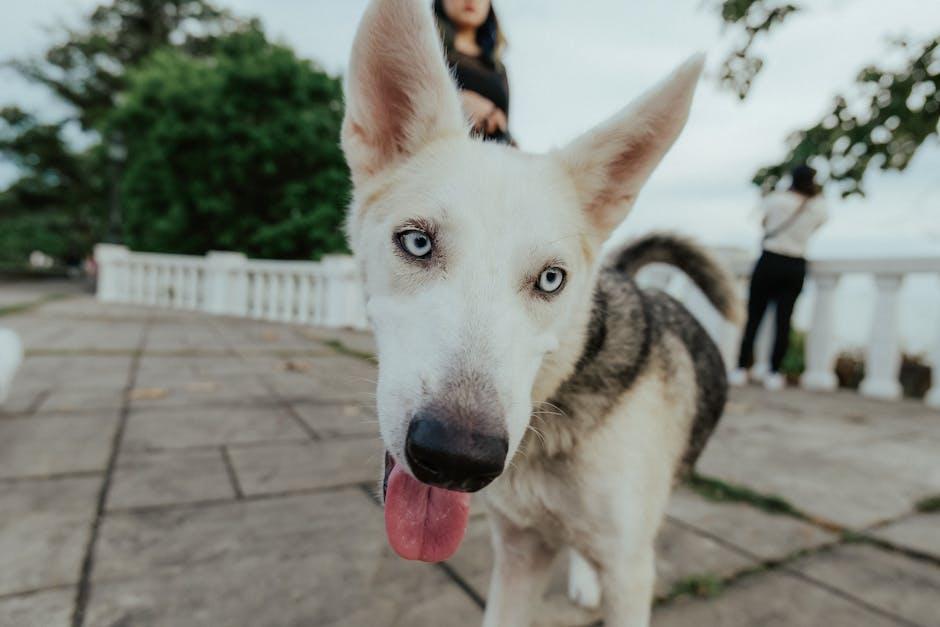Welcoming a new puppy into your home is an exciting and joyful experience, filled with playful moments and boundless affection. However, as your furry friend begins to explore their new environment, you might notice them expressing their curiosity—and sometimes fear—by barking at strangers. While this behavior is quite natural, it’s important to guide your puppy towards a more calm and confident demeanor. In this article, we will walk you through effective strategies to help your puppy feel secure and reduce unnecessary barking. With patience, understanding, and consistent training, you can foster a peaceful atmosphere for both your puppy and the people they encounter. Let’s embark on this journey together, ensuring your puppy grows into a well-mannered and sociable companion.
Understanding the Reasons Behind Your Puppys Barking
Barking is a natural form of communication for puppies, and understanding the reasons behind it is key to addressing the issue. Puppies may bark at strangers due to various factors, including fear, territorial instincts, or excitement. Recognizing these triggers can help you devise strategies to manage their barking effectively.
Common Reasons for Barking at Strangers:
- Fear or Anxiety: Unfamiliar people can be intimidating to your puppy, causing them to bark out of fear or uncertainty.
- Protective Instincts: Puppies may feel the need to protect their home and family, leading them to bark at perceived intruders.
- Excitement or Playfulness: Some puppies bark simply because they are excited to meet new people and want to engage with them.
Identifying the specific reason behind your puppy’s barking will enable you to tailor your approach. For instance, if fear is the primary cause, gradual desensitization and positive reinforcement can help your puppy feel more comfortable around strangers. On the other hand, if excitement is the culprit, teaching your puppy to remain calm in stimulating situations can reduce unnecessary barking. Remember, patience and consistency are crucial as you guide your puppy through these learning experiences.

Building Positive Associations with Strangers
- Treats and Rewards: Start by associating strangers with positive experiences. When you see a stranger approaching, offer your puppy a treat. This will help them understand that new people are not a threat but rather an opportunity for a delicious reward.
- Calm Introductions: Encourage strangers to approach your puppy calmly and gently. Ask them to avoid direct eye contact and sudden movements. A relaxed demeanor can make a world of difference in how your puppy perceives them.
- Controlled Exposure: Gradually expose your puppy to a variety of people in different settings. This can be in a park, on a busy street, or at a friend’s house. The key is to ensure that these interactions remain positive and under control.
Creating a safe and comfortable environment is crucial. Always be attentive to your puppy’s body language. If they seem anxious, it’s okay to step back and try again later. Consistent positive experiences will build their confidence and reduce the instinct to bark at strangers.
Effective Training Techniques to Manage Barking
To help your puppy understand that not every stranger poses a threat, consistency and patience are key. Begin by identifying the situations in which your puppy tends to bark. Is it when someone approaches your home or during walks? Once you’ve pinpointed these scenarios, use the following techniques to manage their barking effectively:
- Positive Reinforcement: Reward your puppy for calm behavior. When they remain quiet as a stranger passes by, immediately offer a treat or affection. This helps them associate strangers with positive experiences.
- Desensitization: Gradually expose your puppy to strangers in a controlled environment. Start from a distance and slowly decrease it over time, ensuring your puppy remains calm at each step. This method helps reduce fear and anxiety.
- Command Training: Teach your puppy a command such as “quiet” or “enough” to stop barking. Use a firm yet gentle tone and reward them when they comply. Consistent practice will reinforce the desired behavior.
Incorporating these strategies into your daily routine will not only curb unnecessary barking but also strengthen the bond between you and your puppy. Remember, patience and consistency are your best allies in this journey.
















